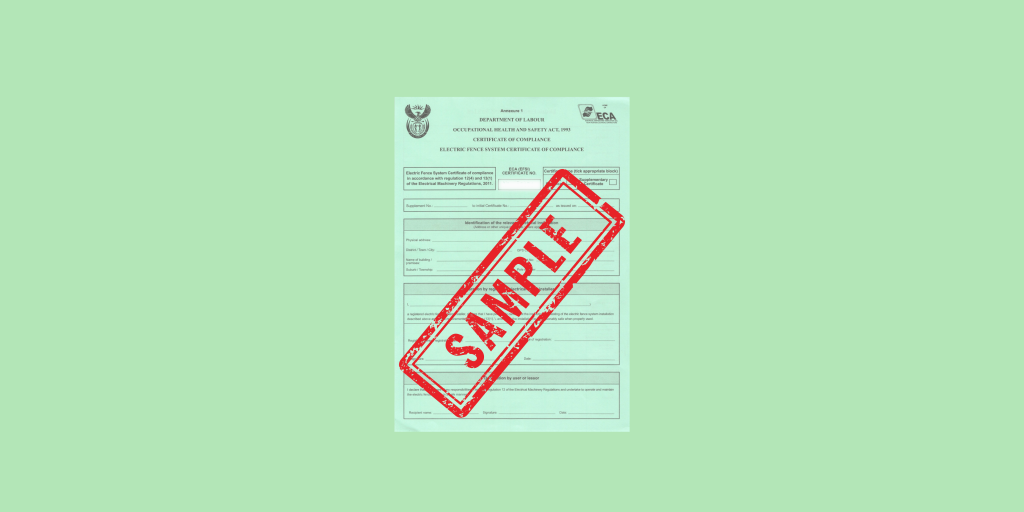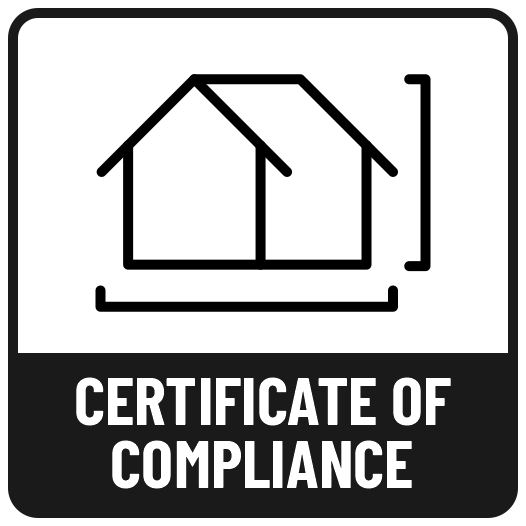Electric fences have become an essential security feature for many South African homes and businesses. However, owning an electric fence comes with legal responsibilities. Property owners must ensure their fences are compliant with national safety regulations in South Africa to avoid penalties and potential legal issues. In this article, we will discuss electric fence regulations in South Africa and what you need to do to remain compliant.

Understanding Electric Fence Compliance
In South Africa, electric fence compliance is governed by the Occupational Health and Safety Act (OHSA) and the SANS 10222-3 standard. These regulations are in place to ensure that electric fences are installed safely and do not pose a risk to people, animals, or property.
A key requirement for compliance is obtaining an Electric Fence Certificate of Compliance (COC). This certificate confirms that the fence has been installed according to safety standards and is legally compliant.
Who Needs an Electric Fence Compliance Certificate?
Not every electric fence installation requires a compliance certificate. However, you need one if:
- Your electric fence forms part of a boundary that separates your property from a neighboring property.
- You are selling your property with an existing electric fence.
- You have installed a new electric fence or made significant modifications to an existing one.
Key Regulations for Electric Fences
To ensure compliance, your electric fence must meet the following requirements:
- Installation by a Registered Electric Fence Installer. Only a registered and certified installer may legally install or modify an electric fence. Always request proof of registration before hiring an installer.
- Proper Warning Signs. Clearly visible warning signs must be placed along the fence at regular intervals to alert people of its presence.
- Safe Voltage Levels. The voltage of the electric fence must not exceed the limits set by SANS 10222-3. Excessive voltage can pose serious safety risks.
- Secure Installation. The fence must be installed in a way that prevents accidental contact by the public, especially in areas near walkways or roads.
- Regular Maintenance. Property owners are responsible for ensuring their electric fence remains in good working condition. Regular maintenance checks are recommended to prevent faults and ensure ongoing compliance.
What Happens If You’re Not Compliant?
Failure to comply with electric fence regulations can lead to legal disputes, and even the forced removal of your fence. If you are selling your property, a non-compliant electric fence could delay the transaction or lead to additional costs to bring it up to standard.
How to Get an Electric Fence Compliance Certificate
Read our article How To Get An Electric Fence Certificate Of Compliance.
Electric fence compliance is not just a legal requirement but also a critical safety measure. By ensuring your fence meets South African regulations, you protect yourself, your property, and others from potential harm. If you are unsure about your fence’s compliance status, it’s best to consult a registered professional for an inspection and certification. Contact us for an Electric Fence Certificate of Compliance.
